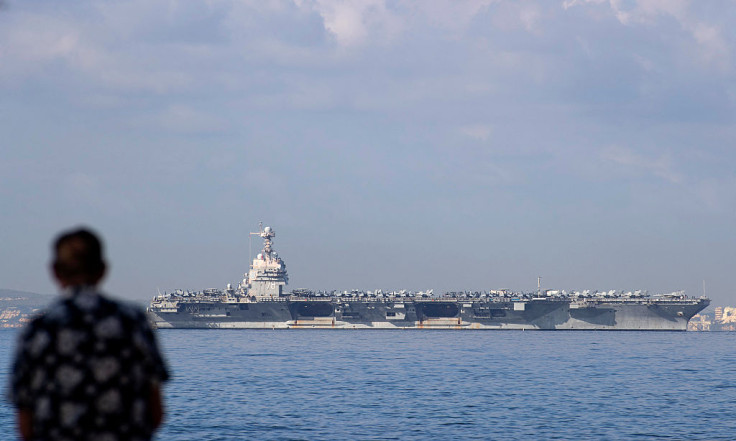
China has called on the United States to avoid interfering in Venezuela's internal affairs, responding to Washington's expanding military operations in the Caribbean and Eastern Pacific.
Foreign Ministry spokeswoman Mao Ning said Beijing "firmly supports the proclamation of Latin America and the Caribbean as a zone of peace" and opposes "any moves that violate the premises and principles of the UN Charter and other countries' sovereignty and security."
The U.S. has deployed the USS Gerald R. Ford, the world's largest aircraft carrier, to the Caribbean as part of what it says is a broad campaign against drug trafficking networks. Mao said China hopes the U.S. will "engage in normal law enforcement and judicial cooperation through bilateral and multilateral legal frameworks" and choose actions "conducive to peace and security."
Beijing's comments come amid reports that President Donald Trump authorized the CIA to prepare covert operations inside Venezuela. The New York Times reported that the authorization could set the stage for future actions and that back-channel talks between Washington and Caracas have recently been reopened.
China made similar arguments earlier this month when esponding to reports that Venezuela sought military assistance from Russia, China, and Iran—including radars, aircraft repairs, and missile systems. Mao Ning said then that Beijing's cooperation with Venezuela "constitutes normal cooperation between sovereign states" and rejected "the use of threat of force in international relations."
She added that China "opposes any attempt to undermine peace and stability in Latin America and the Caribbean, as well as unilateral coercive actions against foreign vessels that exceed reasonable and necessary limits."
Other Venezuelan allies have also criticized the U.S. deployments. Iran recently warned that the growing U.S. military presence in the Caribbean poses "dangerous consequences," saying recent strikes "affect peace and security in Latin America and the Caribbean" and violate international law.
Russia has echoed the same concerns, with Kremlin spokesman Dmitry Peskov saying recently that Moscow remains "in contact with our friends in Venezuela," citing existing "contractual obligations" and pointing to a broader relationship that includes past requests from Caracas for upgraded air defenses, aircraft repairs, and additional missile systems.
© 2025 Latin Times. All rights reserved. Do not reproduce without permission.






